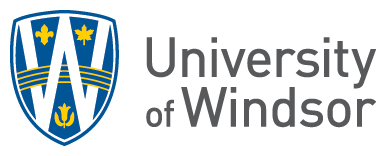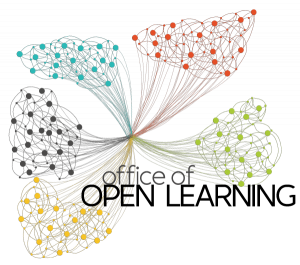Acknowledgments
This course was created by faculty and students at the University of Windsor in conversations with Black community leaders.
We, the members of the Empowering Bystanders Against Anti-Black Racism Curriculum Development Team, are grateful to the many people who have contributed to and supported the development of this course. In addition to our grant and core development team (detailed below), we would like to acknowledge the following individuals in particular:
- Dr. Rai Reece (collaborator; podcast interviewee)
- Marium Tolson-Murtty (resource and curricular consultant; podcast interviewee)
- Kaitlyn Ellsworth (resource and curriculum consultant)
- Dr. Andrew Allen (consultant, podcast interviewee)
- Teajai Travis (podcast music; podcast interviewee)
- Astra Burdette (podcast editor)
This project is made possible with funding by the Government of Ontario and through eCampusOntario’s support of the Virtual Learning Strategy. To learn more about the Virtual
Learning Strategy visit: https://vls.ecampusontario.ca.
| Grantees | Curriculum Collaborators | Educational Developer/Instructional Designer |
|---|---|---|
|
|
|
 |
 |
 |
Land Acknowledgment
We begin this course with a land acknowledgment. Land acknowledgement is a formal statement that recognizes and respects Indigenous Peoples as traditional stewards of the land and the enduring relationship that exists between Indigenous Peoples and their traditional territories. To recognize the land is an expression of gratitude and appreciation to those whose territory we reside on, and a way of honouring the Indigenous people who have lived on and cared for the land from time immemorial. It is important to understand the long existing history that has brought us to reside on the land, and to seek to understand our place within that history. Land acknowledgements do not exist in past tense, or historical context: colonialism is a current ongoing process, and we need to build our mindfulness of present participation. It is important to note that acknowledging the land is Indigenous protocol. We invite students to learn about the First Nations peoples that have stewarded the land on which they live, study, and work.
It must also be acknowledged that “Canada is a settler colony founded on colonization and genocide…[where] Black and Indigenous oppression are historically and currently connected” (Maynard, 2017, p. 11). We honour the legacy of the African diaspora and Black life, knowledge, and skills stolen due to violence and white supremacy. Although we are witnessing the power of a global movement for Black liberation, many are still being met with state sanctioned violence and even being killed. Please reflect upon and honour the Black and Indigenous ancestors who have passed and who have paved the way for ongoing struggles for racial justice and equity.
Land Acknowledgment Adapted from Ticily Medley, Ph.D., LMFT-S, Equity and Diversity Conference, March 23rd, 2021, https://edc.unt.edu/sites/default/files/courageous_convos-slides_032321.pdf
Africentric Land Acknowledgment
As people of Afrikan descent, we offer this land recognition in solidarity with the Indigenous peoples of Turtle Island in the efforts and deliberate intentions toward decolonization. We acknowledge the land of Turtle Island, that was never meant to be owned. We recognize that most of the land that was entrusted to the Indigenous peoples, was in some cases shared by choice, but all too often taken by force. We recognize the historical colonialism, and the ongoing colonialism, that has led to the present-day situation where land acknowledgements are offered in place of land. As people of Afrikan descent, many of us have come here by choice, while many are here as a result of historical force. We acknowledge the complexities where we were promised land that was never given, by those whose it never was to give. As people of Afrikan descent, we acknowledge the land of Turtle Island that sustains us, express deep gratitude to its Indigenous peoples, and pledge to honour our dignity and divinity that ultimately connects us all.
~ ©14 October 2020 by Kaye Johnson, Executive Director, Human Rights, Equity and Accessibility, University of Windsor. (used with permission)

